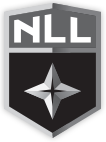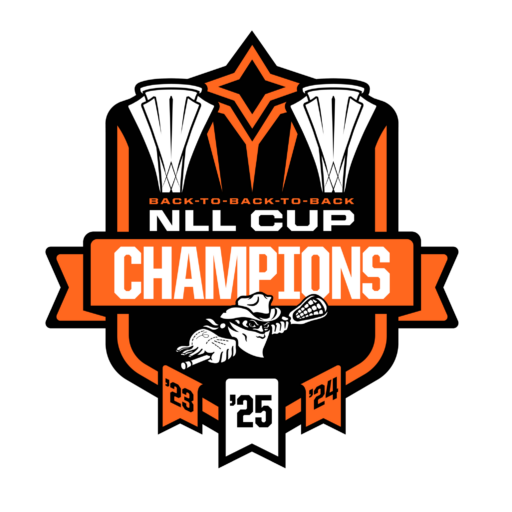Troy Cordingley has been part of box lacrosse in Buffalo since its early days. Drafted by the Buffalo Bandits in 1992, Cordingley played nine seasons in the National Lacrosse League, including seven with Buffalo, and currently ranks in the Top 10 in Bandits history in goals (ninth – 96), assists (seventh – 137), and points (eighth – 233).
Cordingley saw instant success as a rookie, joining a Bandits squad coming off an MILL Championship in 1992 and in the middle of what would become a 23-game winning streak on their way to a second-straight championship in ’93. His first loss as a pro came in the 1994 championship game.
He would win another championship with Buffalo in 1996 before being selected in the 1999 expansion draft by the Albany Attack, the team he would ultimately finish his playing career with after a short stint with the Rochester Knighthawks. Since then, Troy has continued working in the NLL as a coach, scout, and now, assistant general manager and director of scouting for the Bandits.
The Oakville, Ontario native began his head coaching career with the Calgary Roughnecks in 2008 after first serving as an assistant coach for Buffalo from 2003-07. In 2009, Cordingley was named the NLL’s Head Coach of the Year after guiding the Roughnecks to their second Champion’s Cup title.
After Calgary, Cordingley served four seasons as the head coach of the Toronto Rock. Under his guidance, the Rock won the East Division twice (2012, 2013) and reached the Champion’s Cup Finals twice (2010, 2011), winning the title in 2011. In his last season with the Rock, Cordingley coached the team to a league-best 10-6 record, earning his second Les Bartley Award as Head Coach of the Year.
In the Summer of 2013, Cordingley was brought back to where it all started as head coach of the Bandits. He led the Bandits to three-straight playoff appearances during his five-year tenure, including a berth in the 2016 Champion’s Cup Finals. During the 2016 season, he was named a finalist for the Les Bartley Award after guiding Buffalo to a 13-5 record.
The trophy shelf at the Cordingley residence is abundant. To go along with his two Les Bartley Awards, he’s a six-time Mann Cup Champion (four as a player, two as a coach) and a four-time NLL Champion (two as a player, two as a coach). His accolades also include a bronze medal as part of the 1994 Team Canada Field Lacrosse team. Cordingley is a four-time National Champion as a coach for Team Ontario and two-time Provincial Champion as a head coach in the Ontario Minor Lacrosse Association. He has also coached on the world stage with Scotland in 2003 and 2007 and Team Czech in 2015 at the World Indoor Lacrosse Championship.
Cordingley is passionate about growing the game. Through his work with Oakville Minor Lacrosse and HardCor Lacrosse, and Team Ontario, Troy has passed on his knowledge of the game to countless Canadians. He knows how to win at every level and is hoping to see more Americans learn the sport he grew to love as the NLL expands in the coming years.
We had a chat with the Bandits’ assistant GM to learn more about how the National Collegiate Box Series will help in his role of evaluating American-born players looking to make the jump from college field lacrosse to professional indoor lacrosse.
With the expansion of the NLL season-to-season, how important is it for Americans to become involved in box lacrosse and why?
Cordingley: I think it is extremely important for the American players to get involved in box lacrosse. Right now, the majority of the NLL players are Native-born and Canadian. I believe with experience and learning the nuances of the indoor game, the Americans will excel. In recent years, more and more Americans have played in the NLL and have been very successful. As the NLL continues to grow in popularity and expand, it is crucial that we get more Americans involved in the league to maintain a high level of play and showcase the best players in the world.
How and why is the National Collegiate Box Series valuable to NLL teams to use as a scouting tool for American-born players?
Cordingley: The National Collegiate Box Series is very valuable to NLL teams as a scouting tool for American-born players. We are very aware of what many of the American players are capable of doing in field lacrosse but will be able to see how their lacrosse game translates to the box game. Further, we will be able to evaluate the players’ potential, as well as continue to monitor how the players are progressing with more game experience.
What are your thoughts on the Bandits and Knighthawks partnering to bring the Upstate Box Lacrosse League to bring the Upstate Collegiate Box Lacrosse League to the WNY area?
Cordingley: I think this is great that we are working with the Knighthawks. We have a very healthy rivalry with them and have nothing but respect for this franchise. There are a lot of great coaches, players, and management on both sides that have a tremendous amount of experience and knowledge of the box game to pass on. The players will definitely benefit from this and continue to develop their box skills and IQ.
What do you think the advantages are to field players to play box lacrosse in the summer?
Cordingley: There are many advantages for the field player to play box in the summer. The game speed is much faster. Therefore, decision making will have to be that much quicker. Playing in tight spaces means stick skills will have to be tighter and quicker so not to make any errors. Players can play both ends of the floor, transitioning the ball up the floor and developing a whole game rather than a specific position. For the defensive-minded player, they will have to improve on their body position as there are no long poles. And for the offensive-minded player, an advantage would be to work on off-ball movement finding space and lanes to become an offensive threat once getting the ball.
As an AGM and former head coach, what do you look for in players who have a background in field lacrosse, and how you hope that translates indoors?
Cordingley: In Buffalo we look for players that are team first, have a high compete level, and high lacrosse IQ. Further, when evaluating players for offense, we look at who can read the floor, make plays in traffic, and on-floor awareness. With defensive players we look at athleticism, footwork, defensive positioning, aggressiveness and consistently doing your job in the defensive zone.
What has the growth of box lacrosse meant to you as a long-time player, coach, and AGM in the NLL?
Cordingley: It is awesome to witness. Being involved with box lacrosse since I was 3 years old, it makes me happy to see the popularity of the game consistently growing, especially in the USA. We still have a long way to go, but we are on the right track and bigger things are coming for this game. There are a lot of great people, on both sides of the border, involved in growing the game.
What advice would you give to college-aged players who may be learning the game of box lacrosse for the first time?
Cordingley: My advice for college-aged players learning the game of box lacrosse for the first time is to play as much as possible and to play at the highest level they can. The National Collegiate Box Series is perfect, high-level coaching and competition. The players will be learning a whole new set of game-situational skills, and at times it may be confusing or frustrating. But persevere, be confident, watch as much NLL video as possible and ask your coaches lots of questions. In the end, it will be worth the effort.















